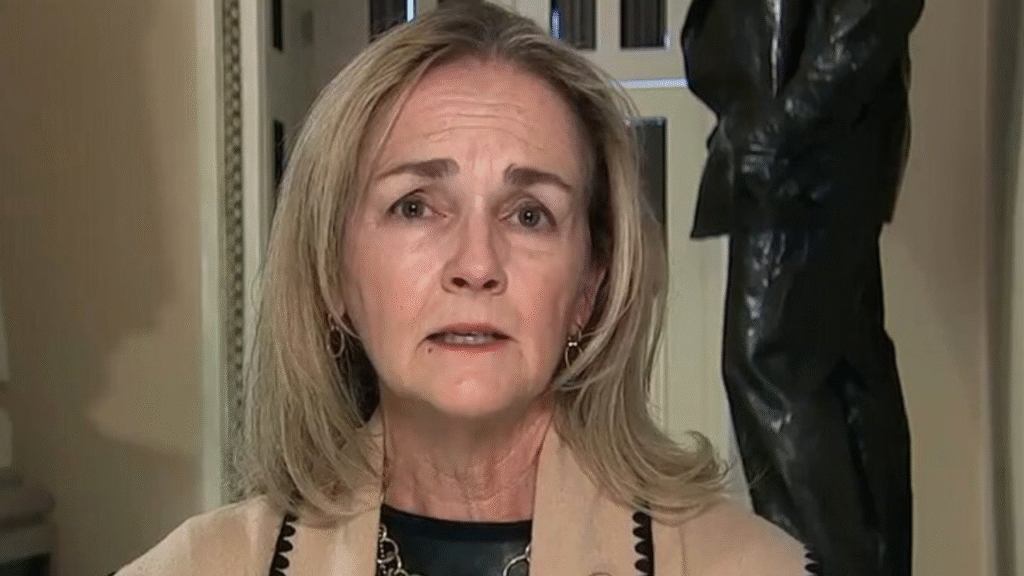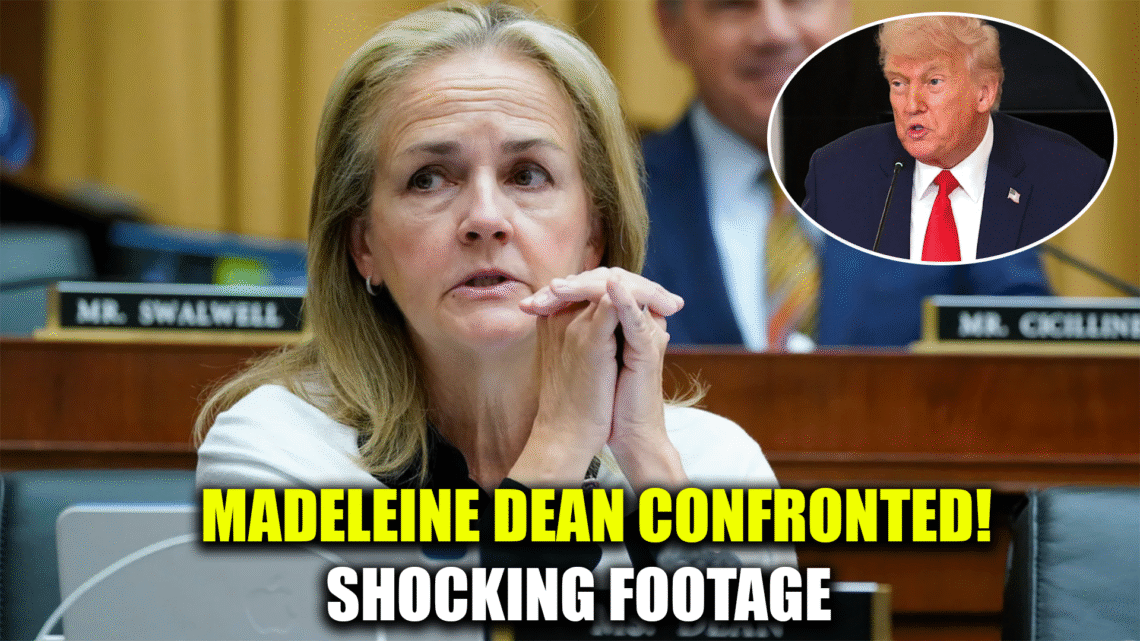A new video circulating online has reignited public interest in a tense exchange between House Speaker Mike Johnson and Democratic Representative Madeleine Dean. The confrontation revolves around an AI-generated video shared by former President Donald Trump, which many critics have called racist and misleading.
In the footage, Speaker Johnson appears to recognize that President Trump may be “unwell,” sparking debate over the role of political leaders in addressing AI-generated content and misinformation. This article explores the details of the confrontation, its broader implications, and what it means for political accountability in the age of AI.

What Happened Between Speaker Johnson and Rep. Dean
The AI-Generated Video
The controversy began when President Trump posted an AI-generated video depicting Democratic leaders in exaggerated, racially insensitive ways. The video presented a distorted narrative about Democrats attempting to offer free healthcare to undocumented immigrants to secure votes.
This content sparked outrage across political circles, as critics labeled it racist and misleading. Such videos highlight the growing challenge of AI in shaping public opinion and spreading misinformation quickly.
Rep. Dean Confronts Speaker Johnson
Rep. Madeleine Dean confronted Speaker Johnson directly over the video, calling it “disgraceful” and urging him to condemn it publicly. Initially, Johnson attempted to downplay the matter, stating the video was “not my style.” However, in the newly surfaced footage, he appears to acknowledge the concern, saying that many on Trump’s side are aware the president is “unwell.”
This exchange underscores the growing tension between ethical responsibility and political loyalty, particularly in the face of AI-generated misinformation.
The Ethical Impact of AI in Politics
AI-Generated Content and Misinformation
The use of AI-generated videos in politics has raised serious ethical questions. Unlike traditional media, AI can produce content that looks and sounds real, yet is entirely fabricated. This can manipulate public perception and reinforce false narratives.
The video in question is a clear example of how AI can be weaponized for political purposes, prompting urgent discussion about the need for transparency and accountability.
Political Accountability
Speaker Johnson’s response highlights the ethical responsibility of political leaders. While his initial dismissal suggested reluctance, acknowledging the concern demonstrates that officials cannot ignore content that spreads misinformation or perpetuates racism. Public accountability becomes even more critical as AI tools grow more sophisticated.
Public and Media Reaction
Media Coverage
Major news outlets quickly picked up the confrontation, emphasizing both the ethical implications of AI-generated content and the responsibilities of public officials. Analysts point to the event as a wake-up call for lawmakers to address AI’s influence in politics proactively.
Public Response
Reactions on social media and public forums have been divided. Many commend Rep. Dean for holding Speaker Johnson accountable, while others question how political leaders should navigate AI-generated misinformation without stifling free speech. This discussion is shaping ongoing debates about AI regulations and digital ethics in politics.
Lessons and Strategies for Ethical AI Use
- Transparency Is Key: Political figures and media platforms must clearly label AI-generated content to prevent misinformation.
- Swift Response Matters: Quick condemnation of misleading content can prevent its amplification.
- Public Education: Citizens need guidance on identifying AI-generated content and understanding its potential impact.
- Policy and Oversight: Governments should consider regulations for AI in political campaigns, ensuring accountability and ethical standards.
Real-Life Example: In 2024, an AI-generated video misrepresented a political debate, creating false claims about a candidate’s statements. Swift public response and media correction minimized long-term damage, demonstrating the importance of accountability.
Conclusion
The confrontation between Speaker Mike Johnson and Rep. Madeleine Dean is more than a political spat—it highlights the growing ethical challenges posed by AI in politics. As AI-generated content becomes increasingly realistic, political leaders must act responsibly, and the public must remain informed.
This incident underscores the urgent need for ethical standards, transparency, and accountability to ensure AI strengthens democracy rather than undermines it.

FAQs
1. What was the AI-generated video about?
The video depicted Democratic leaders in racially insensitive ways and suggested they were offering free healthcare to undocumented immigrants to gain votes.
2. How did Speaker Johnson respond to Rep. Dean?
Initially, Johnson dismissed the video, but he later acknowledged concerns, noting that many on Trump’s side are aware the president may be “unwell.”
3. Why is AI in politics controversial?
AI-generated content can spread misinformation quickly, manipulate public perception, and create false narratives, raising ethical concerns.
4. What lessons can political leaders learn from this?
They must respond swiftly to misleading content, ensure transparency, and uphold ethical standards in political communication.
5. How can the public protect themselves from AI misinformation?
Verify sources, watch for AI-generated indicators, and rely on multiple reputable news outlets for accurate information.





